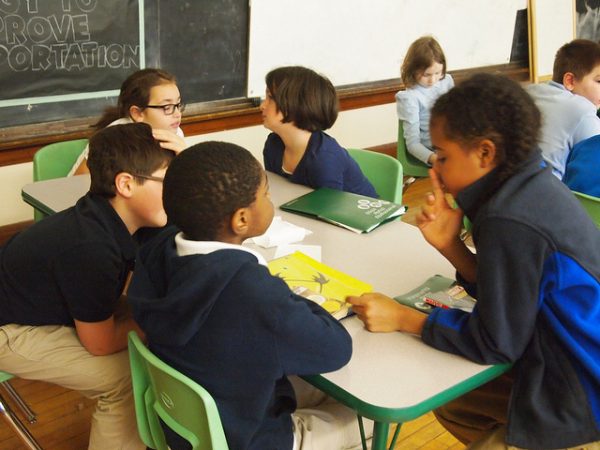
Recent estimates from Child Trends indicate that nearly seven percent of children in the U.S. have experienced parental incarceration. And this rate is twice as high among black children. Most of the current research on the negative impacts of parental incarceration focuses on the effects of a father’s imprisonment on boys’ behavioral problems — boys with incarcerated fathers often act out in school and at home. To expand beyond this research, Anna R. Haskins examines the effects of paternal incarceration on both young boys and girls’ cognitive development and across racial lines.
Haskins analyzed a sample of over two thousand children from the Fragile Families project, a longitudinal study that tracks children and their parents across twenty large U.S. cities. Focusing on the first 9 years of the child’s life, she observed four skills representing cognitive development: verbal ability, reading comprehension, mathematical problem-solving, and attention span. She then determined if a father’s incarceration negatively impacts these key developmental areas during middle childhood.
Findings suggest that the experience of paternal incarceration diminishes a child’s reading, math, and attentional capacities, but not their verbal abilities. But these effects differ between boys and girls. While girls experience reduced reading and math skills, boys are more likely to exhibit a reduced attention span. Preliminary estimates also indicate that racial disparities in paternal incarceration contribute to racial inequality in the achievement gap. In other words, if white Americans were incarcerated at the same rate as African Americans, the black-white achievement gaps at age nine in reading, math, and attention skills would reduce by a range of seven to fourteen percent.
Haskins argues that children of an incarcerated parent may face undue stress, trauma, or stigma, which may latently impact cognitive capacities. In addition to perpetuating racial inequities in educational attainment, the collateral consequences of paternal incarceration extend “beyond boys’ bad behavior,” negatively impacting both young boys’ and girls’ cognitive skills.

Comments